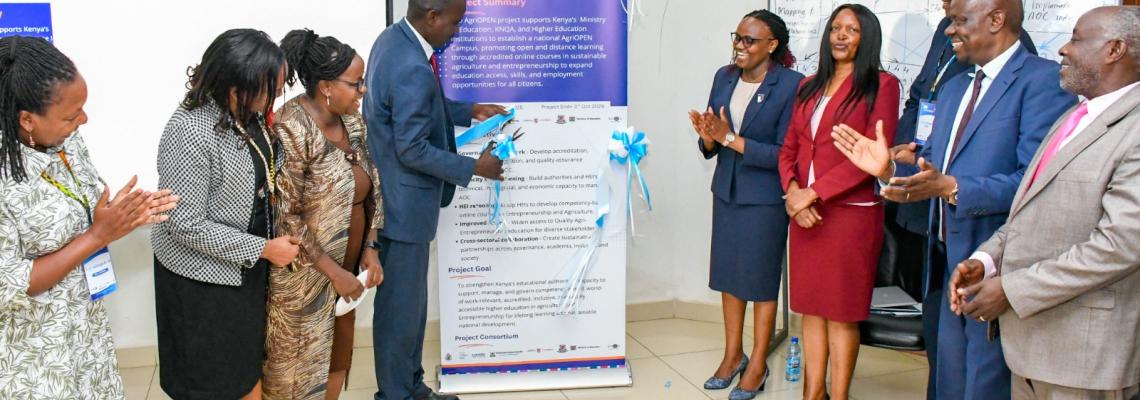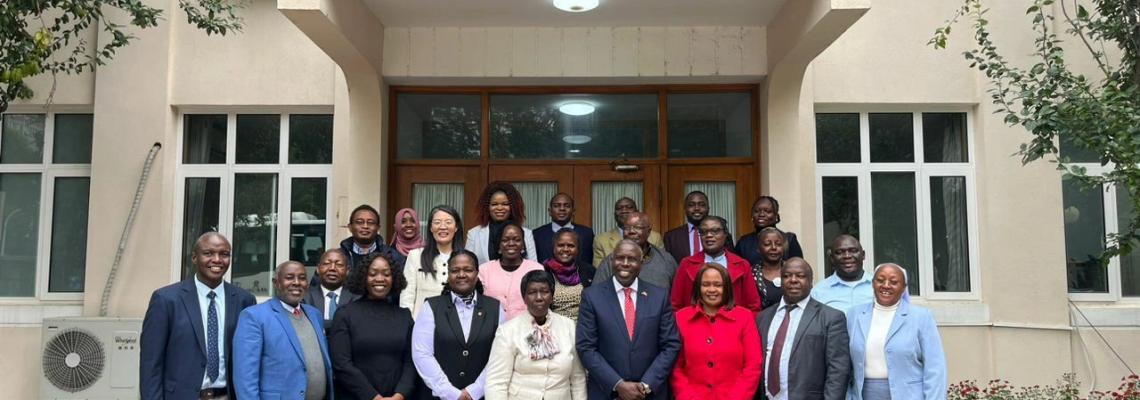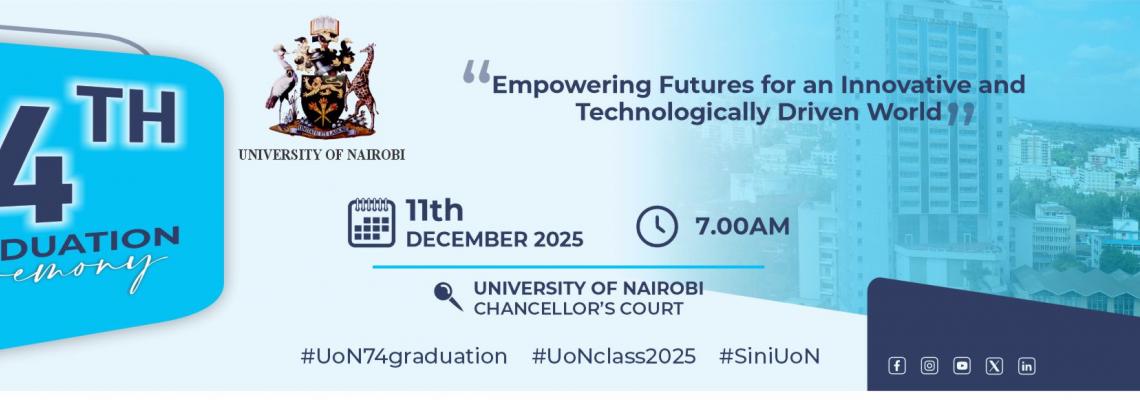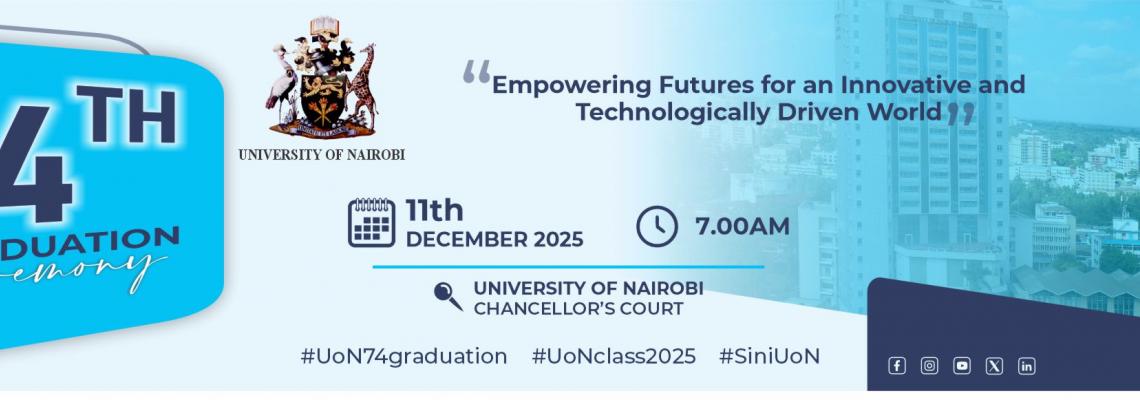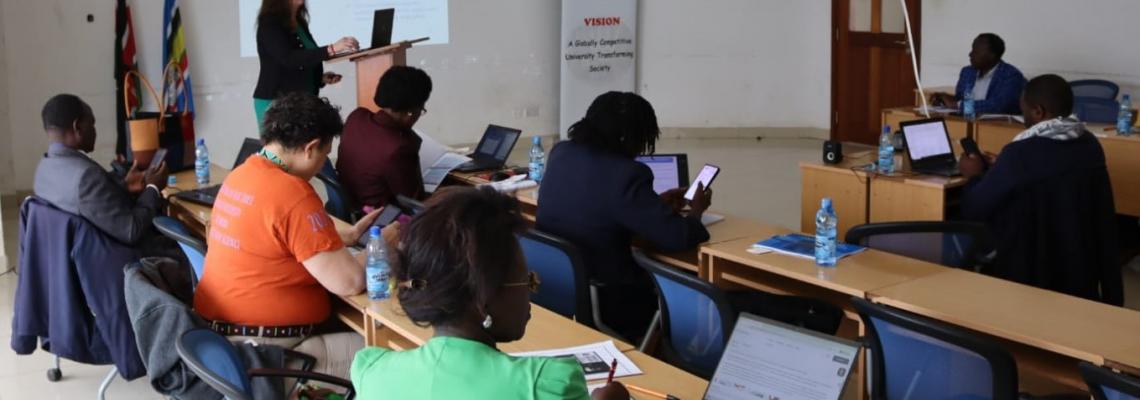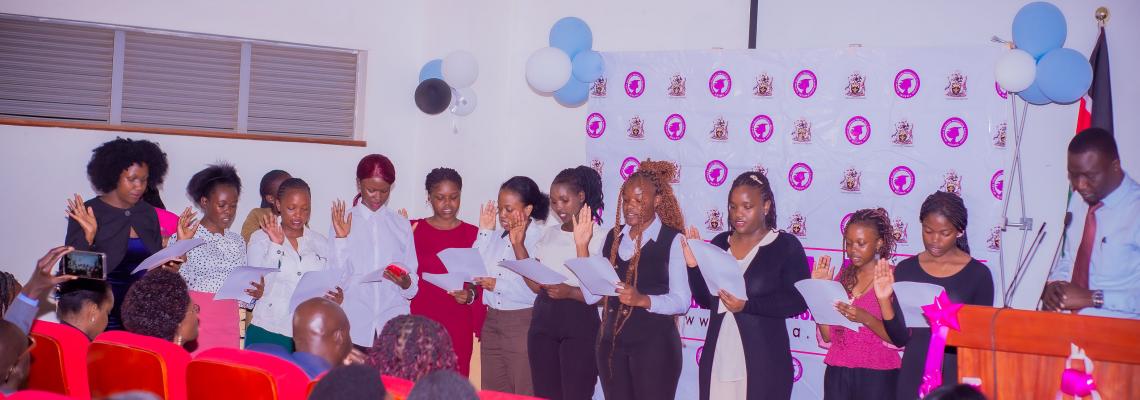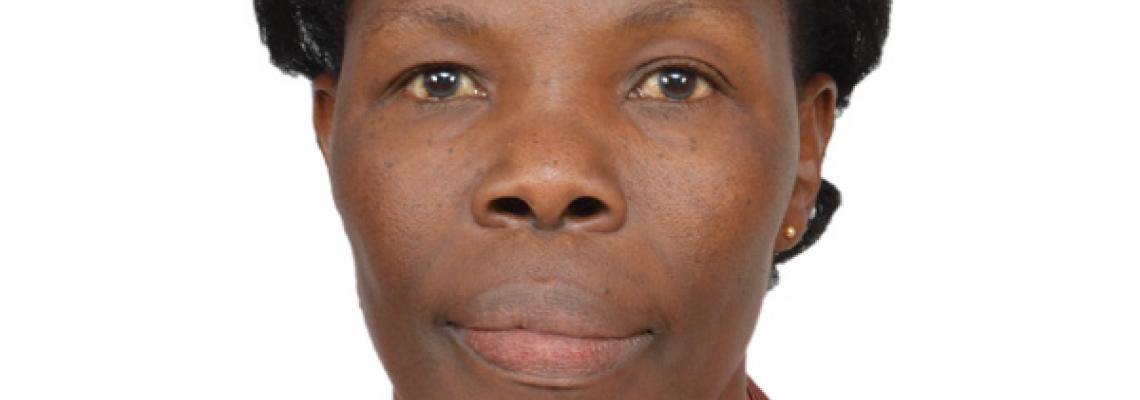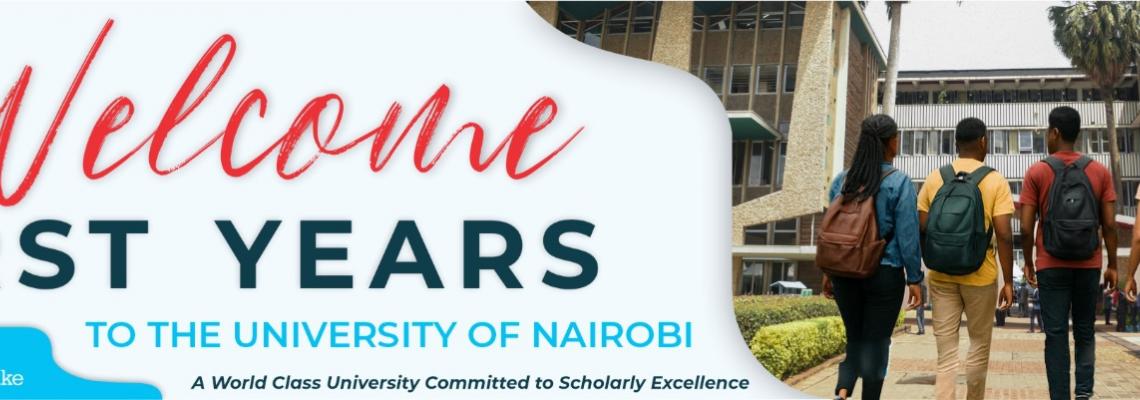This year, the University of Nairobi hosted the research week from 23 rd -27 th October,2023 themed
‘Harnessing Research for Resilience and Sustainability of Communities’. This year’s research week had
most sessions virtual and some physical with researchers from across the globe participating and
presenting on different topics around the theme of this year’s research week. Fourteen (14) sub-topics
were covered during the research week and this was a representation from all the eleven (11) Faculties in
the University. The University of Nairobi staff and students and students from other Universities also
participated in the research week.
The Faculty of Education, hosted an online session ‘1 st Annual International Conference on Educational
Management. policy and Curriculum Studies (AICEMPCS 2023)’ themed ‘Harnessing Research for
Resilience and Sustainability of Communities Through Educational Management, Policy and Curriculum
Innovations’ from the 24 th -26 th October, 2023.A total of 70 papers were presented in this conference.
Prof. Mary Kinoti representing Prof. Margaret Hutchinson, Research, Innovation and Enterprise opened
the Conference on day one(1), 24 th October,2023.While giving her opening remarks, she reiterated that the
university of Nairobi is committed to research and therefore this year’s research week will give an
opportunity to researchers from across the globe, university staff, students and all the participants to share
their knowledge on resilience and sustainability of communities from different angles, connect as well as
learn from each other giving room to making positive impacts and bringing change in institutions and
communities.
Andrew Riechi representing the dean, faculty of education, Prof. Jeremiah Karai noted that the findings
from the papers presented will be of great value to all the participants and their communities. He
encouraged interactions to create connections even in future research.
The chairman, Department of Education, Susan Chepkonga reiterated that all the participants in the
research week will contribute in making positive impacts as far as research is concerned. She challenged
them to address challenges faced by communities currently so as to contribute towards resilience and
sustainability. “Let’s come with policies that will sustain the communities we live in’’. I believe all our
research papers are focusing on this year’s theme ‘Harnessing Research for Resilience and Sustainability
of Communities’. This platform will give all of us an opportunity to share ideas that will shape the future
of education.
Dr. Charles Ong’ondo, CEO, KICD was a keynote speaker on day two (2). He presented on Kenyan
Education Curriculum Reforms. He highlighted that all the education reforms are determined by;
academic context, utility value, historical context such as apprentice, resources, access by all learners,
institutions, state departments in the Ministry of Education, Cabinet, Parliament and the context in which
we live today such as technology, developments and innovation, Politics and Administrative Institutions.
He added that education reforms should be continually reviewed and changes made where necessary to
ensure smooth learning of learners in all schools.
Dr. Charles Obiero presented on ‘Managing Education in Emergency Environments’. He noted that
access and inclusivity should be key in such situations. “An Inclusive Curriculum ensures that the
Educational context is designed to accommodate diverse backgrounds, languages and learning styles both
for students who get displaced due to natural calamities’’. He therefore noted that Inclusive Curriculum
and Specialized Support is important in such environments. These interventions address the need for
physical accessibility, cultural sensitivity and inclusivity in education during emergencies making it
possible for a broader range of children to receive quality education in challenging circumstances.
“Quality training is enhancing Ouality Management Systems in Education sector. During my research,
quality training was rated higher than all other Quality Management System variables and therefore there
is need for the Government to start retraining their employees who are teachers in Primary schools,
secondary schools including junior high school under the Competency based Curriculum and in higher
institutions of learning like universities, technical and tertiary institutions. Suppliers in all these learning
institutions also need to be trained given most of them are youthful or have youthful population as
employees. It will be prudent to train or demand to get trained and certified on Quality Management
Systems before they bid for County Government Tenders as well”. Noted Mr. Gerald Njuguna while
making his presentation on Quality Management Systems in Education Sector in Kenya.
“As researchers we need to focus on partners in our education systems, trending issues, begin to learn
new areas of divergence, obtain challenges we face in our daily activities in our learning institutions as
well as align practices along academic calendar’ ’Noted Chepkoech Mary during her presentation.
“Building of more classrooms, provision of more learning materials and employment of enough teachers
will enable students to perform well especially in Kiswahili subject which students seem not to perform
so well during their KCPE exams”. A presentation of Magdaline Oloo.
Pro. John Chikura presented on Ethical Violations in education system in Kenya and how it’s affecting
learning in general. He emphasized that the ministry of education should come up with ethical policy
which will accommodate codes with rules to guide all stakeholders in the ministry of Education. He noted
also that ethical challenges are experienced when employees work from home especially during the
covid-19 pandemic. He cited that continues reviews should be made to facilitate changes, implementation
of ethical leadership by all the stakeholders, and that the policy should also accommodate organizational
cultures and benefits.
Education by AI Research enhances the following; tracks literature review process, assists researchers
with personalized recommendations, provide powerful visualizations, allows collaborations and offers a
free plan from its proprietary features. This was presented by Prof.Samson Gunga.
"So many challenges are affecting the education curriculum such as poverty, health crisis, conflicts and
calamities in all parts of the world affecting learners. Reforms such as provision of more learning
materials, construction of more infrastructure in learning institutions such as libraries, laboratories and
more classrooms should be put up to address this issue". Dr. Rosemary Imonje .
The University of Nairobi College of Education and External Studies presented on how the university is
committed to research infrastructure through building resilience learning buildings to enhance learning in
communities.
Meir Awandu highlighted challenges faced by the Competency based Curriculum including insufficient
human resource, technology challenges as well as lack of parent involvement in the curriculum.
Susan Chepkonga presented on the role of parent’s supervision of homework to help learners achieve the
goals of the competency based curriculum education. She added that parent’s involvement has been
defined and measured in multiple ways including activities that parents engage in at home and at school
and positive attitudes parents have towards their child’s education, School and teacher.
Other topics that were coved during this conference included; teacher’s preparedness in the Competency
based curriculum in public schools, what universities are doing as higher institutions of learning to
facilitate research as well as combat matters climate change and global warming in education curriculum,
teachers professional knowledge appraisal: A predictor of teacher’s knowledge performance in public
secondary schools, ethical leadership, research and resilient learning community, AI in education,
Governance and education reforms.
Two Wangari Maathai Institute students who presented during the Conference got a fully funded
scholarship to go study and do their research in Canada in Western University.
Dr. Ndiritu highlighted that the conference gave an opportunity to students to share their experiences with
professors. She also thanked all the guests, students, professors and participants for attending and
participating in the research week.
Also present was Dr. Petronilla Kingi, Prof.Justus Munyoki, Director, RIE.
- Log in to post comments

